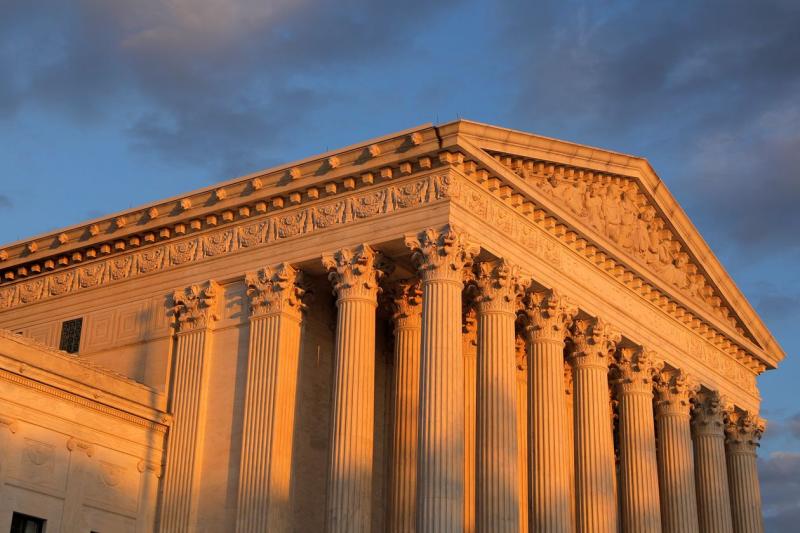Supreme Court Limits Impact of New Criminal Procedures



WASHINGTON—The Supreme Court scaled back protections for criminal defendants, holding that decisions establishing new procedural rules, no matter how significant, may never provide relief for inmates whose direct appeals have concluded.
Monday's 6-3 decision, along conservative-liberal lines, came in a case over the court's 2020 ruling that juries must be unanimous to convict for serious crimes; that decision, by a different lineup of justices, overturned laws in Louisiana and Oregon that had allowed guilty verdicts by 10-2 or 11-1 votes.
The court's opinion, by Justice Brett Kavanaugh, said the 2020 case, Ramos v. Louisiana, didn't meet the criteria for retroactivity the court established 32 years ago. It went on to invalidate those criteria altogether, declaring that going forward, no new criminal procedure rules could benefit defendants during habeas corpus proceedings, which generally are filed after direct appeals to contest the legality of a conviction.
The decision effectively completes the process begun in 1989, when in Teague v. Lane the court plurality said that only "watershed rules of criminal procedure" essential for "fundamental fairness" should be applied retroactively, something it predicted would be rare.
Justice Kavanaugh wrote that rather than rare, the intervening years had proven such circumstances nonexistent.
Apart from a 1963 case recognizing the right to counsel, he wrote, “the Court has never identified any other pre-Teague or post-Teague rule as watershed. None.”
“Continuing to articulate a theoretical exception that never actually applies in practice offers false hope to defendants, distorts the law, misleads judges, and wastes the resources of defense counsel, prosecutors, and courts,” he wrote, joined by Chief Justice John Roberts and Justices Clarence Thomas, Samuel Alito, Neil Gorsuch and Amy Coney Barrett.
Justice Gorsuch wrote the lead opinion in last year’s case, Ramos, which observed that the non-unanimous jury rule had been adopted to limit the ability of Blacks and other minorities to block convictions. Justices Thomas and Kavanaugh agreed with Ramos’s result, as did Justices Stephen Breyer, Sonia Sotomayor and the late Ruth Bader Ginsburg.
The Ramos dissenters were Chief Justice Roberts and Justices Alito and Elena Kagan.
On Monday, however, Justice Kagan argued that inmates with closed cases should benefit from Ramos. In a dissent joined by Justices Breyer and Sotomayor, she wrote that because the court had ruled the Constitution requires jury unanimity, retroactive application should follow.
“Rarely does this Court make such a fundamental change in the rules thought necessary to ensure fair criminal process,” as it did with the unanimous-jury requirement, she said.
But rather than accept the consequences of that finding—applying it to inmates whose convictions after 10-2 or 11-1 juries are final—she argued that Monday’s majority chose to junk the precedent requiring such action.
“If there can never be any watershed rules—as the majority here asserts out of the blue—then, yes, jury unanimity cannot be one,” she wrote. (Edwards v. Vannoy).
In a separate case, a unanimous court refused to extend the “community caretaking” authority police have to seize firearms from impounded vehicles to also cover private homes.
Officers in Cranston, R.I., responding to a call from a distressed wife, seized firearms from the home of a man they suspected could be suicidal. The man sued the police but a federal appeals court in Boston dismissed the case, citing the community-caretaking exception to the general rule that officers need a warrant for such actions.
The opinion, by Justice Thomas, left open the question of whether other rationales, such as exigent circumstances that leave no time to obtain a warrant, might apply when life or safety are at stake. (Caniglia v. Strom).




“Continuing to articulate a theoretical exception that never actually applies in practice offers false hope to defendants, distorts the law, misleads judges, and wastes the resources of defense counsel, prosecutors, and courts”..... Justice Brett Kavanaugh